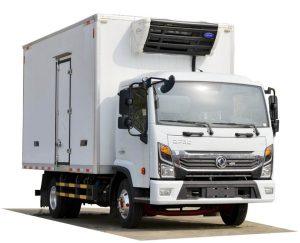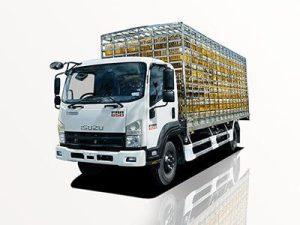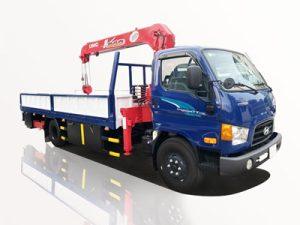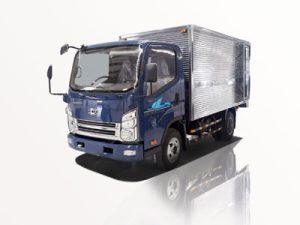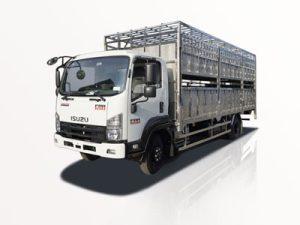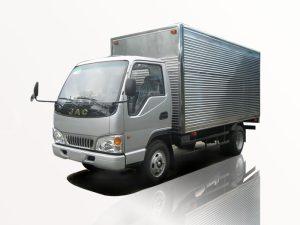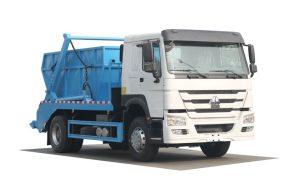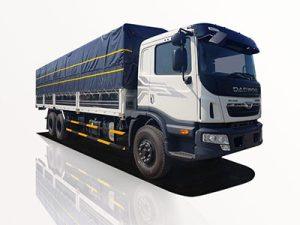Monday to Saturday - 8:00 -17:30
Unlocking the Potential of the Small European Truck
Introduction
In recent years, the demand for small European trucks has surged due to their versatility, efficiency, and adaptability to various urban and rural transport needs. These vehicles are perfect for businesses, freelancers, and individuals seeking a practical solution to their logistics challenges. This comprehensive guide delves into what defines a small European truck, explores the benefits of choosing such a vehicle, reviews popular models, and offers essential tips for prospective buyers and users.
What is a Small European Truck?
Definition and Characteristics
A small European truck is typically defined as a vehicle designed primarily for transporting goods but is compact enough to maneuver easily through narrow streets and congested urban areas. Characteristics of small European trucks include:
- Payload capacity typically ranging from 1 to 3.5 tons
- Compact dimensions for easy parking and navigation
- Fuel-efficient engines, often diesel or electric
- Robust build quality for durability
- Advanced technology features for safety and convenience
Types of Small European Trucks
Small European trucks come in several forms, catering to diverse needs:
- Panel Vans: Enclosed cargo spaces for transporting goods securely.
- Pick-Up Trucks: Open bed for easy loading and unloading.
- Chassis Cabs: Customizable platforms for specialized uses.
Benefits of Small European Trucks
1. Enhanced Maneuverability
One of the most significant advantages of small European trucks is their size. Their compact nature allows for easy navigation through tight city streets and parking in cramped spaces, making them ideal for businesses operating in urban environments.
2. Fuel Efficiency
Smaller trucks tend to have more fuel-efficient engines, contributing to lower running costs. This economy of fuel can lead to significant savings over time, especially for businesses with high transportation demands.
3. Cost-Effectiveness
Compared to larger trucks, small European trucks are generally more affordable to purchase, insure, and maintain. This makes them a favorable option for startups and small businesses looking to minimize expenditures.
4. Versatility
Small European trucks can be used for various activities—from delivery services to construction work, they can handle a range of cargo types and business operations. Their adaptability means that they can fit the needs of many different sectors.
Popular Models of Small European Trucks
1. Ford Transit Connect
This compact van is known for its reliability and efficient fuel consumption. With a payload capacity of up to 1,600 pounds, it’s an excellent choice for urban deliveries.
2. Mercedes-Benz X-Class
The X-Class combines luxury with utility, featuring a spacious bed and advanced safety features. Its strong build makes it suitable for both personal and commercial use.
3. Volkswagen Transporter
Famed for its iconic design, the Volkswagen Transporter offers various configurations and a robust engine, making it a top choice among small truck users in Europe.
How to Choose the Right Small European Truck
1. Assess Your Needs
Identify what you will primarily use the truck for—delivery, personal use, or construction may necessitate different features and configurations.
2. Evaluate Payload Capacity
Consider the weight of the loads you will regularly transport. Ensure that the truck can handle your typical cargo without compromising on safety or performance.
3. Look for Fuel Efficiency
In the long run, a fuel-efficient truck will save money. Compare different models’ miles per gallon to make an informed decision.
4. Analyze Maintenance Costs
Research the maintenance records of potential models. Choose a truck known for reliability and low maintenance requirements to minimize future expenses.
5. Test Drive Models
Before making a purchase, it’s essential to test drive the vehicles to assess comfort, visibility, and handling. A good driving experience can significantly impact day-to-day usage.
Financing Options for Small European Trucks
1. Leasing vs. Buying
Decide whether leasing or purchasing is more beneficial for your financial situation. Leasing offers lower monthly payments and allows you to drive a new vehicle every few years, while buying allows you to own the asset outright.
2. Loan Options
Research various loan options provided by banks or automotive companies. Compare interest rates, repayment terms, and eligibility criteria to find the best deal.
3. Tax Implications
Look into the tax deductions available for commercial vehicles in your region, as this can influence your financial planning effectively.
Practical Tips for Using a Small European Truck
1. Regular Maintenance
Stick to a routine maintenance schedule to keep your truck in top condition. Regular oil changes, brake checks, and tire rotations can prevent larger issues down the line.
2. Weight Management
Be mindful of the weight limits for your vehicle. Overloading can diminish performance and lead to hazardous driving conditions.
3. Safety First
Always prioritize safety by using seat belts, ensuring loads are secured properly, and adhering to traffic regulations.
4. Efficient Loading
Organize cargo to maximize space while maintaining balance. Place heavier items at the bottom and distribute weight evenly to improve handling.
Frequently Asked Questions (FAQ)
1. What is the ideal payload capacity for a small European truck?
The ideal payload capacity varies depending on your needs, but most small European trucks range between 1 to 3.5 tons, suitable for various uses.
2. Are small European trucks good for rural areas?
Yes, small European trucks are versatile enough to handle rural terrains. Their compact size enables better access to remote locations compared to larger vehicles.
3. How do I maintain a small European truck efficiently?
Stay on top of regular maintenance schedules, check fluid levels, inspect tire pressure regularly, and keep the truck clean to prevent rust and damage.
4. Can I modify a small European truck for specific needs?
Definitely! Small European trucks like chassis cabs can be customized for various purposes, including refrigeration, tool storage, or specialized cargo needs.
5. What factors influence the resale value of small European trucks?
Factors such as age, mileage, condition, brand reputation, and maintenance history can significantly impact resale value.
6. Are small European trucks environmentally friendly?
Many small European trucks are equipped with fuel-efficient engines and are increasingly available in electric models, making them a more environmentally friendly option compared to larger traditional trucks.


